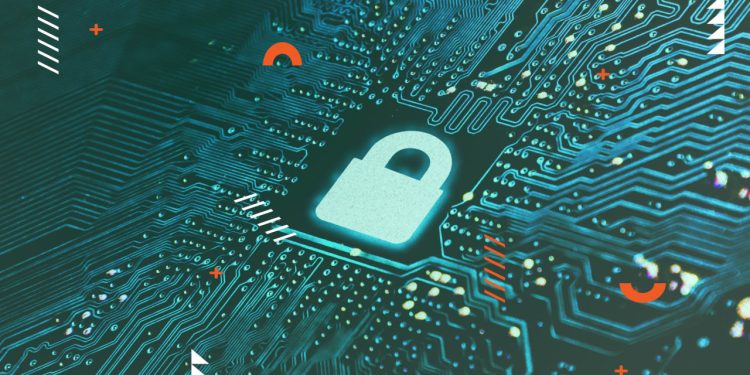Blockchain technology and Decentralized Finance (DeFi) has revolutionized the financial industry by introducing transparent, secure, and borderless systems for transactions and asset management. However, as these technologies gain popularity, they also attract the attention of malicious actors seeking to exploit vulnerabilities and disrupt the ecosystem. In this article, we will explore the challenges faced in securing blockchain technology-DeFi and discuss potential solutions to mitigate these risks.
Introduction
Blockchain technology, at its core, is a decentralized ledger that records transactions across multiple computers, making it resistant to tampering and fraud. DeFi, on the other hand, refers to the use of blockchain technology to recreate traditional financial systems in a decentralized manner, eliminating intermediaries and providing greater financial inclusion. The combination of these technologies has unleashed a wave of innovation, but it has also introduced new security challenges.
Understanding Blockchain Technology
Blockchain technology is a groundbreaking innovation that has disrupted various industries, particularly finance. At its core, blockchain is a decentralized ledger that enables secure and transparent recording of transactions across multiple computers or nodes. It has gained significant attention due to its potential to revolutionize the way we store and transfer information.
The fundamental concept of blockchain revolves around a chain of blocks, where each block contains a collection of data and a unique identifier called a hash. These blocks are linked together chronologically, forming a sequential chain. One of the key features of blockchain is its immutability, meaning that once data is recorded in a block, it becomes extremely difficult to alter or tamper with.
Blockchain operates on a distributed network of computers, ensuring that no single entity has control over the entire system. This decentralization makes blockchain resistant to hacking or manipulation, as the majority of nodes in the network need to reach a consensus before a transaction is considered valid and added to the blockchain.
One of the significant benefits of blockchain technology is its transparency. As the ledger is distributed and public, anyone can view the transaction history recorded on the blockchain. This feature enhances trust and accountability in various sectors, such as supply chain management, where stakeholders can track the movement of goods from production to delivery.
Introduction to DeFi
DeFi, short for Decentralized Finance, represents a transformative paradigm in the world of finance. It leverages blockchain technology to recreate traditional financial systems in a decentralized manner, eliminating intermediaries and empowering individuals with greater control over their assets and financial transactions.
Unlike traditional finance, which relies on centralized authorities such as banks and brokers, DeFi operates on blockchain networks, enabling participants to interact directly with smart contracts. These smart contracts are self-executing agreements with the terms of the agreement directly written into code. This direct peer-to-peer interaction facilitates transparent and efficient financial activities, cutting down on costs and enabling global access.
DeFi encompasses a broad range of applications and services, including decentralized exchanges (DEXs), lending and borrowing platforms, yield farming protocols, stablecoins, and more. These platforms enable users to trade assets, lend or borrow funds, earn interest through liquidity provision, and participate in various financial activities, all without the need for intermediaries.
Security Challenges in Blockchain Technology-DeFi

- Smart Contract Vulnerabilities: Smart contracts are self-executing agreements with the terms of the agreement directly written into code. However, coding errors or vulnerabilities can lead to serious consequences. Exploiting these vulnerabilities can result in funds being stolen or locked indefinitely.
- Decentralized Exchange Risks: Decentralized exchanges (DEXs) facilitate peer-to-peer trading without the need for a central authority. However, they can be susceptible to hacks and malicious activities, such as front-running and flash loans, which can cause significant financial losses.
- Privacy and Confidentiality Concerns: While blockchain technology ensures transparency, privacy, and confidentiality can be challenging to achieve. The pseudonymous nature of blockchain transactions can lead to potential privacy breaches if not adequately addressed.
Solutions to Enhance Security in Blockchain Technology-DeFi
- Auditing and Code Reviews: Regular auditing and code reviews by security experts help identify and fix vulnerabilities in smart contracts and DeFi protocols.
- Multi-factor Authentication: Implementing multi-factor authentication (MFA) adds an extra layer of security, ensuring that only authorized individuals can access and manage accounts.
- Secure Key Management: Proper key management practices, such as using hardware wallets or secure storage solutions, minimize the risk of private key theft and unauthorized access.
- Privacy-Enhancing Technologies: Leveraging privacy-enhancing technologies like zero-knowledge proofs and secure multiparty computation can protect user privacy while maintaining the benefits of transparency.
The Role of Regulations and Compliance
Regulations and compliance in blockchain technology-DeFi:
- Establishing Guidelines: Governments and regulatory bodies develop frameworks and guidelines to address risks and ensure the proper functioning of blockchain technology-DeFi.
- Protecting Investors: Regulations aim to protect investors by establishing standards for transparency, accountability, and disclosure of information.
- Preventing Financial Crimes: Compliance measures, including AML and KYC procedures, help prevent financial crimes such as money laundering and terrorist financing.
- Mitigating Fraud: Regulations help mitigate fraudulent activities by setting requirements for project documentation, audits, and reporting.
- Ensuring Market Integrity: Regulatory oversight promotes fair practices, preventing market manipulation and insider trading.
- Promoting Consumer Protection: Regulations establish rules to safeguard consumers’ interests, ensuring they have access to accurate information and recourse in case of disputes.
- Encouraging Innovation: Well-defined regulations can foster innovation by providing a clear legal framework for businesses and investors to operate within.
- Enhancing Stability: Regulatory compliance contributes to the stability of the blockchain-DeFi ecosystem, reducing systemic risks and increasing investor confidence.
- Enforcing Legal Compliance: Regulatory bodies have the authority to enforce compliance, investigate violations, and impose penalties for non-compliance.
- Addressing Cross-Border Challenges: Regulations can help address cross-border challenges by harmonizing standards and facilitating international cooperation.
Importance of Education and Awareness
Education and awareness play a crucial role in the successful adoption and utilization of new technologies, especially in the context of blockchain technology-DeFi. As these technologies continue to evolve and disrupt traditional systems, it becomes increasingly important to educate users and promote awareness about their benefits, risks, and best practices.
One of the key aspects of education is providing users with a clear understanding of how blockchain technology and DeFi work. This includes explaining the underlying concepts, such as decentralized networks, smart contracts, and cryptographic security. By building a strong foundation of knowledge, users can make informed decisions and navigate the complexities of these technologies effectively.
Furthermore, education plays a vital role in promoting user training and knowledge. Providing resources, tutorials, and workshops can empower individuals to understand and utilize blockchain technology-DeFi platforms confidently. This not only enhances their user experience but also reduces the likelihood of user errors or vulnerabilities resulting from a lack of understanding.
Another important aspect of education is raising awareness about potential risks and scams in the blockchain-DeFi space. With the growth of this industry, malicious actors are always seeking opportunities to exploit unsuspecting users. By educating individuals about common phishing attacks, fake websites, and fraudulent schemes, users can develop a heightened sense of vigilance and protect themselves from falling victim to scams.
Collaboration and Industry Initiatives
Collaboration and industry initiatives are crucial for the growth, development, and security of blockchain technology-DeFi. As this innovative ecosystem continues to evolve, it is essential for different stakeholders to come together, share knowledge, and work collectively towards common goals.
One of the key aspects of collaboration is the establishment of open-source communities. These communities provide a platform for developers, researchers, and enthusiasts to collaborate, share ideas, and collectively improve the security and functionality of blockchain technology-DeFi. Through open-source initiatives, individuals can contribute code, conduct peer reviews, and propose enhancements, leading to continuous innovation and improvement.
Bug bounty programs are another important aspect of collaboration. These programs incentivize independent researchers to identify vulnerabilities and report them responsibly. By encouraging a proactive security culture and providing rewards for identifying and fixing bugs, bug bounty programs enhance the overall security of blockchain technology-DeFi platforms. This collaborative approach ensures that potential vulnerabilities are identified and addressed before they can be exploited by malicious actors.
Security auditing firms also play a vital role in collaboration within the industry. These specialized firms conduct thorough audits and evaluations of smart contracts, DeFi protocols, and blockchain networks. Their expertise helps identify vulnerabilities and potential risks, providing valuable insights to improve the security and functionality of the ecosystem.
Conclusion
Securing blockchain technology-DeFi is an ongoing endeavor that requires a multi-faceted approach. By addressing smart contract vulnerabilities, strengthening decentralized exchanges, ensuring privacy, and adopting regulatory frameworks, we can enhance the security of this transformative technology. Educating users, fostering collaboration, and staying vigilant against emerging threats will contribute to a safer and more resilient blockchain-DeFi ecosystem.
FAQs
- What are the main security challenges in DeFi?
The main security challenges in DeFi include smart contract vulnerabilities, decentralized exchange risks, and privacy and confidentiality concerns.
- How can smart contract vulnerabilities be mitigated?
Smart contract vulnerabilities can be mitigated through regular auditing, code reviews, and the use of secure coding practices.
- Why is privacy important in blockchain technology-DeFi?
Privacy is important in blockchain technology-DeFi to protect user information and prevent unauthorized access to sensitive data.
- What role do regulations play in securing blockchain technology-DeFi?
Regulations help establish guidelines and standards to address risks associated with blockchain technology-DeFi and enhance security and compliance.
- How can users protect their assets in the DeFi ecosystem?
Users can protect their assets in the DeFi ecosystem by implementing secure key management practices, using multi-factor authentication, and staying informed about potential risks and scams.









